
22-Year-Old Girl Who Got Infected With Coronavirus Talks About What It Was Like Fighting The Illness
Young people believe that this virus can’t touch them. But, is it really so?

Young people don’t seem to care much about the virus because they think they can’t get infected, and even if they do, it will go away like a common cold. This happens often, but it is not a rule.
It is a fact that people aged 20-44 years make 29% of the infected, and only 2% to 4% of the people admitted to the ICU, but that doesn’t make them immune – just less likely to be seriously ill. Less likely is not immunity. Bjonda Haliti is an excellent example that the virus can infect anyone.
Not long ago, this 22-year-old girl tested positive for COVID-19. She thought about whether she should share her experience and eventually realized that it is an opportunity to bring awareness to the problem, and ho would do It better than a person who went through it all. She described the symptoms she had, and the course of the battle against the virus.
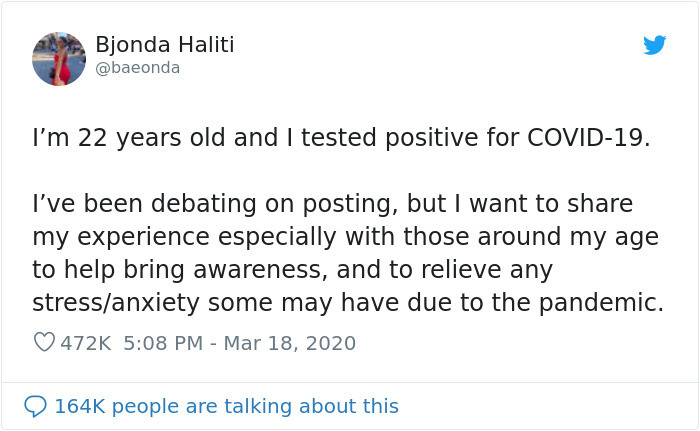 baeonda
baeonda
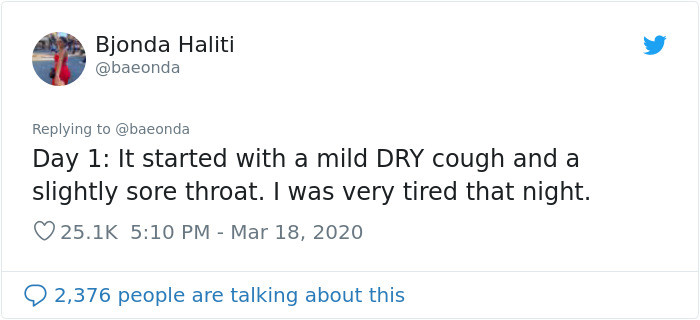 baeonda
baeonda
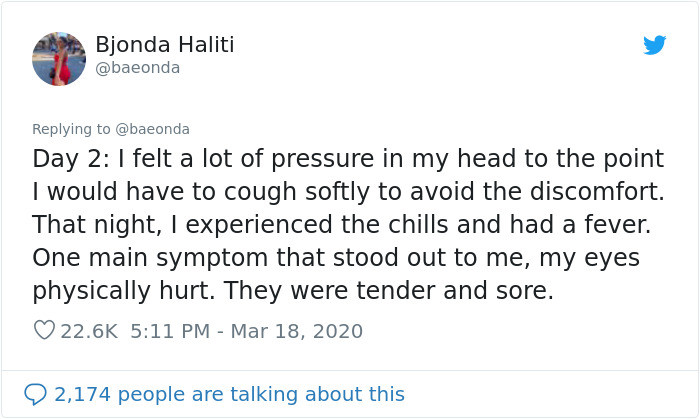 baeonda
baeonda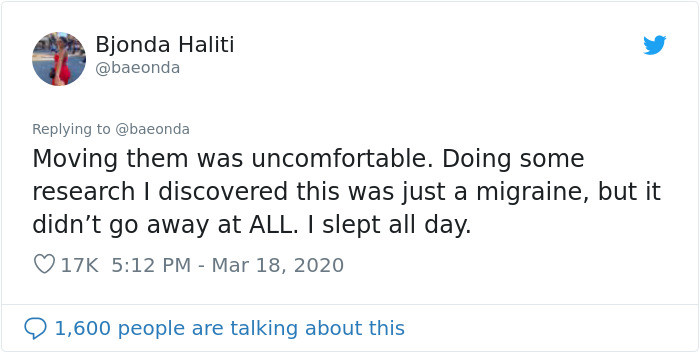 baeonda
baeonda
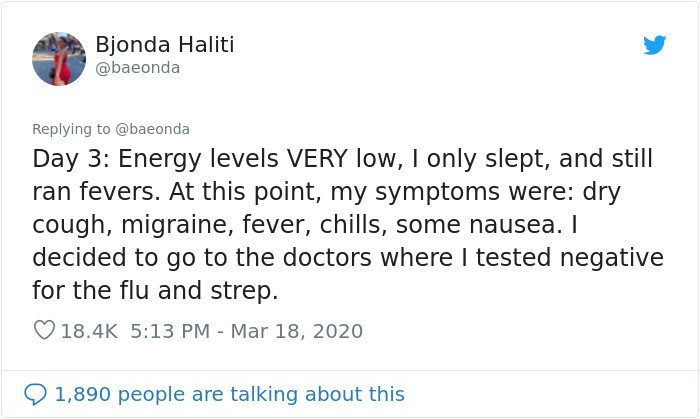 baeonda
baeonda baeonda
baeonda
 baeonda
baeonda
At this point, it should be mentioned that cybercriminals are doing their best to exploit the coronavirus fear by establishing hundreds of fraudulent websites, offering fake info and home test kits so they could take people’s data and money. Cybersecurity professionals stated that since January, over 4,000 coronavirus-related domains had been listed, and around 300 of them are considered to be “malicious” or “suspicious.”
For example, when award-winning doctor Faheem Younus discredited some of the myths about COVID-19, he said that the “hold your breath for 10 seconds” test is total rubbish, too. “Most young patients with coronavirus will be able to hold their breaths for much longer than 10 seconds,” he said. “And many elderly without the virus won’t be able to do it.”
 baeonda
baeonda baeonda
baeonda
 baeonda
baeonda baeonda
baeonda
 baeonda
baeonda baeonda
baeonda
 baeonda
baeonda
 baeonda
baeonda
 baeonda
baeonda
 baeonda
baeonda
 baeonda
baeonda
 baeonda
baeonda
 baeonda
baeonda

The Centers for Disease Control and Prevention (CDC) indicated that infections have ranged from minor symptoms to severe illness and death for confirmed COVID-19 cases.
Fever, cough, and shortness of breath can occur 2-14 days after exposure. The CDC recommends that people should get urgent medical attention after experiencing some of the symptoms: bluish lips or face, persistent pain or pressure in the chest, difficult breathing, or shortness of breath.
People who have a higher risk of severe disease from COVID-19 (have heart disease, diabetes, and older adults) have to contact their healthcare provider early on, even if the symptoms are mild.
Don’t be scared to ask for help. “We are here to help each other out,” Dr. Lerner reminded us in The New York Times. “Avoid being a do-it-yourselfer when you’re not qualified. Grab some other clear-thinking person to ask what she thinks or what he would do about stockpiling food, or taking that plane trip, or talking to little Billy about what’s going on with grandma in the hospital, and his school is closed. You may choose not to follow the advice you seek, but it’s essential to have other perspectives.”
And how do people comment?
 DeLordEmperor
DeLordEmperor
 DStewart541
DStewart541
 Duresa_M
Duresa_M
 Ethan_Regal
Ethan_Regal
 jiedel
jiedel
 BGeneus
BGeneus
 KellyCytron
KellyCytron
 Debveglitter
Debveglitter
 AnnaeusS
AnnaeusS
 JelloQuantum
JelloQuantum
Damjan







